With dedication and hard work, Jenny Wynne-Jones has turned around the fortunes of her Welsh Spar store.
When Jenny Wynne-Jones took over Spar Holywell, Flintshire, in February, the store was on its knees. Sales had plummeted, competition had intensified, shoplifting was rife, and staff attendance sporadic. But this didn’t stop her from stepping out of her comfort zone.
“I’d been working with my dad at his store in Connah’s Quay for a number of years, went to work at Spar central office for eight months, returned to my dad’s shop as I missed retailing, and then this opportunity came up,” she explains. “I wanted the challenge and to be my own boss. And Dad said I would regret it for ever if I didn’t do it.”
Her first task was to arrest the declining sales, which had dropped to £10,500 a week from £16,000 when it first opened six years ago. Since the store was built the recession has come and lingered, as have a Tesco and Lidl, which now trade within a short walk away.
The store was in no condition to compete with the nearby mults. “The standards were absolutely shocking and everything was disorganised. They didn’t keep one piece of paperwork - everything went in the bin,” Jenny says.
Furthermore, the previous owner didn’t have a good credit history with Spar, so he could no longer buy anything through Blakemore. “As a result, everything was pricemarked and he had a lot of stuff you wouldn’t normally stock,” she says. “So two days before I took over I printed off planograms from the Blakemore website, printed off a label for each product, and went around the shop laying out all the tickets so when that first order came in, the staff would know exactly where to put all the stock,” she says.
Store profile
Opening hours:
7am-9pm Monday-Saturday, 8am-9pm Sunday
Size: 1,800sq ft
Staff: 11 part-time
Extra services: PayPoint, National Lottery, Health Lottery, food to go
Training the staff was an immediate challenge, but one which paid off quickly. “People would just not turn up for work before. But I retrained them on everything: serving the customers; the way they were putting things through the till; putting up labels,” she says.
“They couldn’t believe they were doing the job so wrong before. They absolutely loved the new challenge, although they didn’t know what hit them at first! They’re still so motivated, and they’re happy just to have a job to be honest.”
Despite financial constraints and the recent increase in the minimum wage, Jenny is proud that she’s managed to keep on the members of staff she inherited and hasn’t cut their hours. “The rise in the minimum wage costs an extra £80 every four weeks, which isn’t a massive amount but you’ve still got to find that money from somewhere,” she says.
She even managed to increase the workforce by employing two extra staff dedicated to a new food-to-go section. Jenny wanted to branch out into food to go in order to ease the store’s reliance on PayPoint, lottery and cigarettes, and her bold move has paid off. “We now make our own sandwiches and baguettes on site and we’ve just started to do hot food as well. We’ve gone from doing nothing to £800 a week, and now it’s getting colder we expect to make more,” she says.
Other changes in the first few months included moving aisles and displays around. The pick ‘n’ mix feature, for example, moved from in front of the till to near the door. “People didn’t see it in time before, and it was worth repositioning as it has a 38% margin. Sales have taken off as a result.”
And to her surprise, she was granted her request for a Costa Express machine, which sits next to the food-to-go counter. “We didn’t think we had enough sales to meet their strict criteria, but they liked the fact we had parking and a bus stop nearby,” Jenny adds.
So with the coffee beginning to flow- mixed with a 25% margin - and food to go gaining in popularity, sales began to climb to a steady average of between £13,500 and £14,500 a week. But in order to consolidate the revival, Jenny set her sights on the nearby competition, which in addition to Tesco and Lidl includes Iceland, Bargain Booze, a greengrocer and a bakery.
With admirable optimism, Jenny looks on the bright side. “In a way, it’s a good thing that all the competition was already here as nothing else can open up,” she says.
With the help of Blakemore, she has taken the fight directly to Tesco. “We do a Tesco price match initiative which Blakemore sends out every three weeks. It only applies to Tesco Express stores, and even though this is written in the small print people just see the Tesco logo in large letters - so we sell stuff which never normally goes,” she says. “Obviously, you’re losing margin on that product as it is dramatically cheaper - although Blakemore gives us an over-rider to do it - but it changes people’s perceptions on price.”
Jenny recognises the store’s limitations when it comes to competing with Lidl, however. “It’s really hard - it’s so cheap in there and their fruit & veg is so good. We hardly do any, especially with a greengrocer nearby as well.”
Sales of frozen food are also poor, which she attributes to Iceland’s presence on the high street. But instead of fighting a losing battle, she has a plan B for the freezer. “Someone from Blakemore advised me to fill the freezer with ice bags if we can’t sell pizzas, ice cream and chips. That’s their number one frozen item. We’ve done that a few times and might resort to doing it permanently in the future.”
She is not scared to make bigger changes if certain categories fail to take off. “If we can’t get the grocery side of things working we’ll have to look at the whole concept of the shop,” she says. “It’s the type of place we could put a café in, or introduce a serve over food to go area and put some seating in. There’s a lot of elderly people who come in while waiting for a bus and who want to sit down.”
Ultimately, her main challenge is to increase basket spend. “The shop was built to the size it is because there wasn’t any competition at the time, but now very few people pick up a basket,” she says. “We’ve got strong footfall, it’s just getting them to buy the other stuff.”
And Jenny has not lost focus on the items that sell well, such as tobacco. She has introduced pricemarks on five major cigarette brands in order to drive footfall, rather than margins, and is confident that the category will remain buoyant despite legislation. “I can’t see the display ban making much difference here. If people want to smoke, they’ll smoke and keep buying tobacco. We’re located between two housing estates and people are brought up like that - their families smoke so they do, too,” she says.
Lottery sales are another success story, having increased 6% since February to about £5,000 a week. The Health Lottery is also doing “surprisingly well”, although operating it through the PayPoint machine can be a time-consuming business, she points out.
Jenny has not only worked hard to improve sales. When she took over in February, the level of theft was “ridiculous” and gangs of youngsters would loiter outside in an intimidating manner, putting off customers from entering. “The first thing the staff said to me was: ‘Are you going to do something about the shoplifting?’. Before I arrived, customers knew they could simply pick up a case of lager and walk out the door.”
Ten months on and the store suffers hardly any shoplifting, which Jenny attributes to a hands-on, zero tolerance approach. “We’ve now got police radio, CCTV which is right by the till, and we’ve put up A4 pictures of a policeman saying ‘CCTV in operation’ all over the shop,” she says. “We’ve also put cameras up outside after someone smashed the Spar sign by the door in my first couple of weeks. The police have also been good at moving on gangs when I’ve asked them to.”
But she also likes to play the diplomat, wary of alienating a proportion of her customer base. “It’s a fine line with kids - if you say something in the wrong tone they’ll get aggressive, so you have to treat them as adults.”
Looking ahead, Jenny has the option of extending the two-year lease from Blakemore, or she could buy the business. Whatever choice she makes she is “here for the long haul”. She adds: “I don’t want to make it sound like a fairytale, because it’s not. I haven’t got a massively successful business after 10 months, but through sheer hard work and determination we’ve turned it around without any money.” In these austere times, Jenny has shown what can be done against the odds.





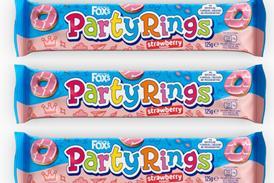
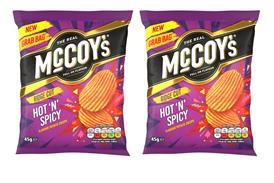
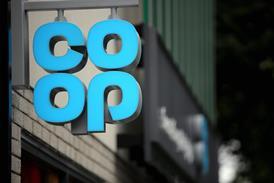

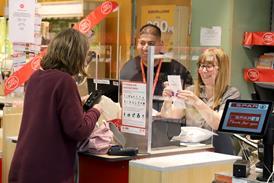

![WG-4003[58]](https://d2dyh47stel7w4.cloudfront.net/Pictures/274x183/4/5/1/353451_wg400358_6083.jpg)




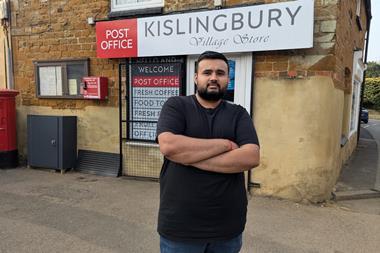
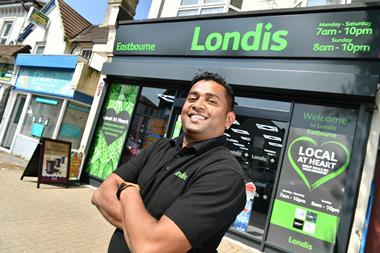
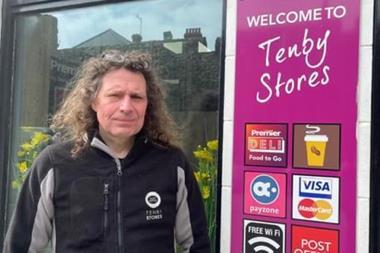
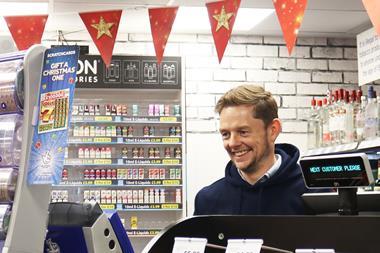
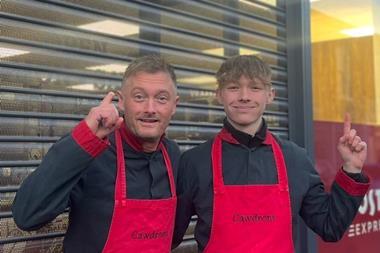
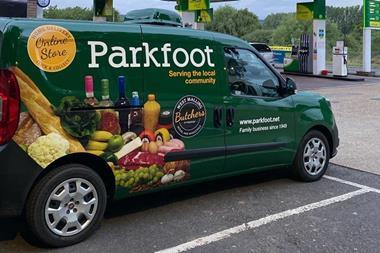



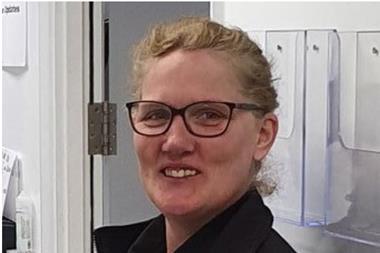
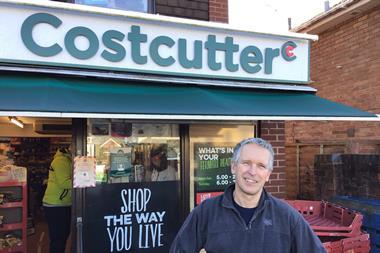
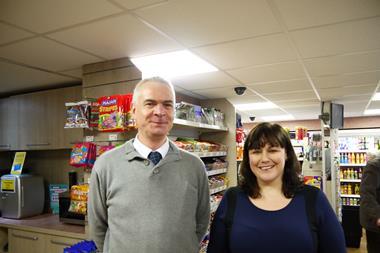
1 Readers' comment